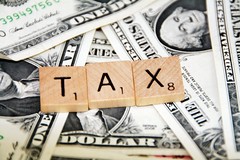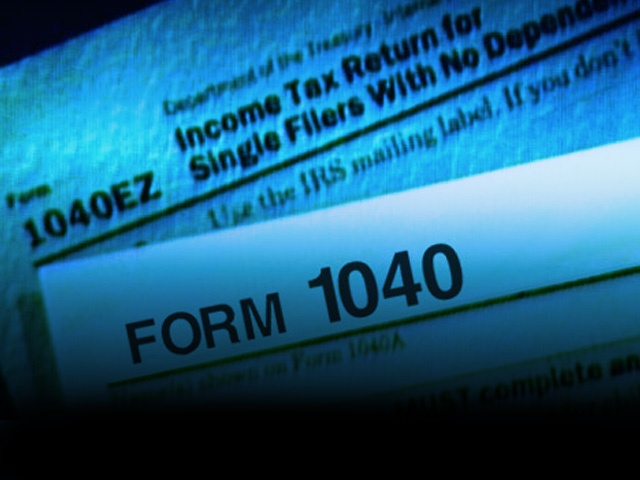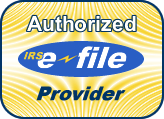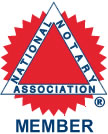More of “Things your tax pro may not tell you”
“You wouldn’t believe it.”
Complaints about tax preparers, including allegations of inaccuracies and returns that weren’t filed on time, are up 80% in the past five years, says the Council of Better Business Bureaus. But when it comes to the Internal Revenue Service policing problem preparers, “the lifeguard is still asleep.”
Less than 1.5% of returns get audited, and while that may pacify nervous taxpayers, audits are the primary way to catch bad tax pros. The GAO found that a year after it reported poor preparers by name to the IRS, the agency had failed to audit a single one. Professional organizations, such as the American Institute of Certified Public Accountants and the National Association of Enrolled Agents, pack even less of a wallop because they often wait for the IRS to act. Then the institute will strip membership and report bad accountants to the relevant state-licensing group.
Finding this information is a two-step process. If your CPA is an AICPA member, you can find out if he’s been disciplined by the institute by checking on the AICPA website. You can retrieve details by putting his name in the site’s search box. If your CPA has been disciplined, it’s important to note the reasons why, “There is a whole range of situations where the (institute) would discipline a member.” Those could include not returning client records, disclosing confidential client information and not exercising due care in preparing a tax return. To find out if a CPA’s license has been revoked, you should check with your state board of accountancy.
“What are your qualifications?”
Concerned about unethical, unlicensed tax preparers and what has been called “sharks in the water.” “Anyone can call himself a tax preparer.” Many have. At one point as many as 600,000 tax preparers were unregulated, according to the National Taxpayer Advocate, the taxpayer assistance wing of the IRS. Some set up shop in a local real-estate office, but many work for the big chains.
This all changed with the IRS RTRP program. If your preparer doesn’t have an PTIN, they are not allowed, by law, to prepare your return for profit. (This includes any CPA, EA, Attorney, RTRP anyone who prepares) by the end of this year (2012) All non-CPA’s, EA’s, or Attorneys will have had to pass a competency test. A minimum competency test is now live and by the end of 2013, all preparers will have to pass the test in order to prepare tax returns for compensation. The new RTRP (Registered Tax Return Preparers) will also have an annual continuing education requirement of 15 hours. All the hours will be tax related.RTRP - Ask your Representative why it is that CPA’s, and Attorneys are exempt from these requirements. I say this because As it stands now, They are not and will not be tested concerning tax issues nor will they need to take CPE related to tax matters like an EA or RTRP.
“If it’s February, you’re late.”
A savvy tax pro may be able to cut your tax bill or juice your refund. But don’t expect to find one come mid February. From that point through April, tax pros are generally too busy to talk to new clients. So if you don’t already have a preparer lined up, by the time you actually have your W-2s in hand, you’re probably not going to get good service.
This means you should be talking to tax preparers in October, November or even as late as early January. They’ll have time to answer questions, look over your old returns and suggest changes. Not only that, but talking to a tax pro in the fall means you still have time to plan. If you wait until you have all your W-2s, you’ve locked in all your income for the year. But in the fall a good preparer can help you figure out ways to manipulate your income by increasing your 401(k) contributions, deferring a bonus until the new year or taking taxable losses.
Wait until spring and a professional can help you make small decisions, like whether to itemize or think about different deductions, but you’ve lost most of your flexibility.
“Taxes, whatever — let me see what else I can sell you.”
The real money in tax prep has nothing to do with 1040 forms and W-2s. For the big-chain preparers, as well as your local accountant, the register really lights up only when they persuade you to take a loan, open a retirement account or buy insurance. Chances are you don’t need what they’re selling, but the sales pitch may blur the issue. GAO staffers reported that when they visited the big-chain tax preparers, loans were described as “options” or “bank products”; on one visit a customer was asked to sign a loan application without being told what it was. RAL means Refund Anticipation Loan.
Worse, these extras can do you more harm than good: More than 80% of those who opened an “Express IRA” at H&R Block, for example, paid more in fees than they earned in interest, according to a lawsuit filed by the New York attorney general. (H&R Block says most Express IRA accounts opened between 2001 and 2005 have yielded “positive net tax savings benefits and interest earnings,” even as the company “has lost money operating this program.”)
CPAs, too, are in the sales game, ever since the AICPA allowed members to sell insurance products. When commissions can be $20,000, it’s easy to get greedy.
“If I screw up, I’ll pay up.”
Worried about an audit? H&R Block and Jackson Hewitt are happy to ease your mind — for a price. Both offer the option of buying a geared-up guarantee that promises to cover any back taxes you owe, plus interest, fees and penalties.
Here’s what they don’t say: You don’t need the extra protection. If it turns out you owe back taxes, the big chains’ basic (read: free) guarantee already covers fines, penalties and interest. Many CPAs and EAs and RTRP will do the same; they often have insurance for that very purpose. Just be sure to ask about it before one does your return. But what about the back taxes?
True, they could amount to a bigger expense than the fines and penalties, which may be why some chains can sell that extra guarantee. But H&R Block and Jackson Hewitt will cover you only up to $5,000 and exclude the most complicated returns. If you’re tempted, know there may be an unintended consequence: If someone pays your taxes, the IRS considers that taxable income.
In other words if you buy the guarantee, and H&R Block ends up paying your back taxes, expect to get a 1099 next January.
“Tax preparation is an art, not a science.”
Recent law changes (EIC to name one) tightened penalties for tax preparers who play fast and loose with the tax code, taking far-fetched positions because they know 99% of returns never get audited. That said, for anyone with a complicated or unusual financial life, there’s still lots of wiggle room, I’ve never heard “It’s about 10% black, 10% white, and everything else is in the middle.”
Chances are good you have room to maneuver if you have income in a category the tax code treats flexibly — you’re self-employed, for example, or own rental property. Ditto if you’ve earned big capital gains or incurred high or unusual medical expenses. In short, if you’re attaching a schedule to your return, a good tax preparer will pay for himself.
Now, that may mean raising a red flag with the IRS, and a good preparer should explain if he’s taking risky positions. If you can’t stomach the specter of an audit, you’ll want a pro to travel on the side of caution.
Think twice before paying someone to look for loopholes if your income picture is relatively simple. If you’ve got one W-2, you don’t need someone fancy, there’s not a lot we can do for you.
“You’d be better off.”
Maybe you’re hiring a tax preparer because you’ve got better things to do with your weekend or numbers make you dizzy — more power to you. But if you’re hiring a pro because you think he’s smarter than you, think again. On average, tax preparers make more mistakes, and costlier ones, than John Q. Taxpayer does.
According to a study of IRS data, 56% of professionally prepared returns showed significant errors, compared with 47% of those done by the taxpayer. And audited taxpayers who used preparers owed an average of $363, while those who filed themselves owed $185.
Of course, tax preparers often see more-difficult returns, which could lead to more errors.
For a family with one W-2, mortgage interest and a couple of kids, TurboTax is just fine. If, on the other hand, you’re attaching a schedule for self-employment income or capital losses, consider getting help. And even then, if a return is made complicated by a one-time event — say, the birth of a child or the acquisition of a rental property — you might need only one year’s worth of advice. If nothing changes, you should be able to copy it from year to year, so long as you keep up with tax law changes to your situation.
“You should shop around.”
There’s no standard price for doing taxes. Some preparers charge by the hour, others by the form; either way the cost depends on where you live, the complexity of your situation and the qualifications of your tax pro. Consider: The average H&R Block customer pays about $150; a CPA may charge 15 times that.
People rely too much on word of mouth; they don’t shop prices. If they did, they might be surprised. A licensed local pro may not cost much more than a national chain.
I charge by the form, and a simple return could cost just under $150.00 – not much more than what you might pay at a big chain.
Even among franchises, prices vary. The return that cost $90 to prepare at one big store cost more than three times that at another, according to a GAO study. To be fair, it may be hard to know what your return will cost before the preparer actually spends time on it. Ask for estimates using last year’s return — that’ll give you a point of comparison to find the best price.
Shop around.
Related articles
- Using the Title “Registered Tax Return Preparer”?!
- Help Me Prepare My Taxes
- A Cpa For Taxes-does It Make A Difference?
- Preparer Registration Wastes Time and Money – Guest Post by Joe Kristan


















